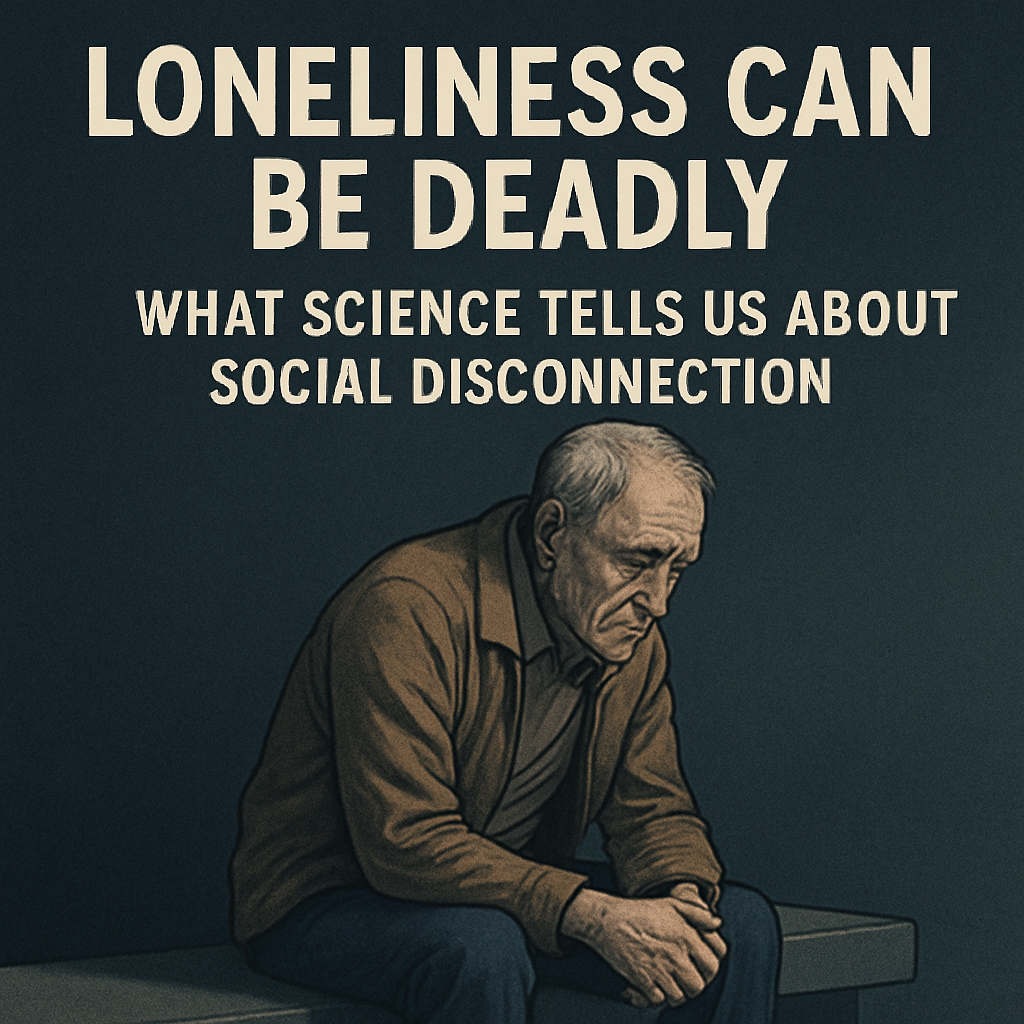Loneliness Can Be Deadly: What Science Tells Us About Social Disconnection

When we hear the word "loneliness," we often imagine a quiet evening alone or someone feeling left out at a party. But research is increasingly clear: loneliness is not just an emotional experience --- it's a serious public health risk.
One of the most influential studies on this topic is the meta-analysis conducted by Dr. Julianne Holt-Lunstad and her team, published in Perspectives on Psychological Science in 2015. The researchers reviewed data from 70 studies, involving over 3.4 million participants across North America, Europe, Asia, and Australia. Their conclusion was striking: people who experience chronic loneliness, social isolation, or simply live alone face a significantly higher risk of early death.
To put it plainly --- and shockingly --- the increased risk of mortality from social isolation is comparable to risks associated with smoking 15 cigarettes a day, and even greater than those linked to obesity or physical inactivity. Specifically, the study found that:
-
Social isolation was associated with a 29% increased risk of early mortality.
-
Loneliness carried a 26% increased risk.
-
Living alone increased the risk by 32%.
📚 Holt-Lunstad, J., Smith, T. B., Baker, M., Harris, T., & Stephenson, D. (2015). Loneliness and social isolation as risk factors for mortality: a meta-analytic review. Perspectives on Psychological Science, 10(2), 227--237. https://doi.org/10.1177/1745691614568352
Why Does Loneliness Affect Our Health?
Humans are social beings by nature. We evolved in groups --- for safety, for survival, and for emotional regulation. When we are cut off from meaningful human connection, our brains interpret this disconnection as a threat. Stress hormones like cortisol remain elevated, immune function decreases, and inflammation rises. Over time, this leads to a cascade of physical health problems: higher blood pressure, disrupted sleep, heart disease, weakened immunity --- and, as the study shows, increased risk of premature death.
Loneliness also impacts our mental health. It often walks hand in hand with depression, anxiety, and low self-worth. What's more troubling is that once loneliness sets in, it can become self-reinforcing: we withdraw, feel worse, then withdraw even more.
Connection Is Not a Luxury --- It's a Lifeline
What Holt-Lunstad's study makes clear is that connection is not optional for human health --- it is essential. Just as we care about diet, exercise, and sleep, we should also care about the health of our relationships and the quality of our interactions.
The study doesn't mean that spending time alone is bad --- solitude can be enriching and restorative. What matters is whether we feel disconnected from others in a sustained and painful way. That's the kind of loneliness that takes a toll --- quietly, gradually, and deeply.
What Can We Do?
At KindTalks, we believe that small conversations can make a big difference. You don't need dozens of friends or a packed calendar to be emotionally healthy --- sometimes, just talking to one kind, empathetic person can shift everything.
The takeaway from Holt-Lunstad's research is powerful, but not hopeless. Loneliness is reversible. Social connection can be built --- and rebuilt --- with intention, support, and empathy.
We invite you to treat connection as part of your self-care. Reach out, show up, and speak openly. Your body --- and your mind --- will thank you.
❤️ Final Thought
Loneliness doesn't have to be a silent epidemic. With awareness, compassion, and collective action, we can change the narrative --- from disconnection to belonging.
Related Articles
Loneliness is often imagined as a private, individual experience --- a quiet ache that lives inside us, separate from the world around us. But what if...
We often assume that as we get older, we grow more resilient --- that the challenges of life somehow get easier with time. But for many adults over 50...
Health** We often think of heart disease as being caused by smoking, poor diet, or lack of exercise --- and of course, these are major factors. But th...